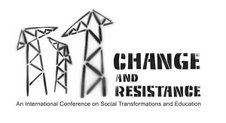Natalia Kovalyova
UT Austin
A recent wave of regime-changing uprisings in the Eastern Europe was a topic of much discussion while the events were unfolding and their commonalities generated a sizeable amount of scholarly work that defined them as a “second wave of post-communist electoral revolutions” (Tucker 2005). Apart from being close in time, these pro-democracy movements were centered about fraud in elections organized by the administration: as a result of seriously mishandling of electoral procedures and vote counting, mass protests took place; after some period of time, the incumbent president resigned and/or election results were overturned, and the leader of the opposition became a new president. Yet, in a very strict sense of a word, the term revolution does not apply to those events as they have not produced any long-term consequences and social changes. Rather, the term revolution in their regard identifies that the movement was successful in “overthrowing the current regime” (Tucker 2005, p.2).
This paper examines one such movement – the “Orange Revolution” of 2004 in Ukraine – using a collection of news (776 stories) captured by in October – December 2004. The sources of the news include the BBC, CNN, Deutsche Welle, The New York Times, Los Angeles Times, Washington Post, The Times, The Financial Times, and news agencies (Associated Press and Reuter). The analysis uses a close reading of texts focusing in labels mentioned, actors or interested parties identified, and perspectives employed in order to gain insight into versions of the Orange Revolution that were presented to the (international) public.
skip to main |
skip to sidebar


Blog Archive
-
▼
2007
(40)
-
▼
February
(27)
- Learning in local communities. Case study of south...
- Exhibiting post-communism in contemporary (east) G...
- Science, Human Rights and Social Transformation
- Flexible figures in Discourses of University Gover...
- Reproduction, Empowerment and External Studies. Fe...
- The Reflections of Popular Culture: A Multiple Cas...
- Education Reforms in Post-Communist Poland and Latvia
- ‘Current men’ and contemporary ethical education
- Child Play and Toy in two Generations: “Upon a Chi...
- Change and Resistance in European Higher Education...
- Western-Style Arabic Music Video Clips and Emirati...
- Sexual education – girls still invisible
- Family or cultural patterns of life? - changes and...
- Mediation, social Change and Life Long Learning , ...
- Universities as sites of Transformation and Resist...
- Emirati (Arab, Muslim) Women: Their changing view...
- Polish Language and Foreign Language Policy in Pos...
- The examination of the Turkish youth’ life satisfa...
- Hiring God: Religion and the Market Economy in Rom...
- “Collective stories” – Or: How social work could h...
- Revolutionary Colors
- Border-Oder-Other. On dynamics of mental change in...
- Critical theory and Post Soviet legacies: rights a...
- Searching for a new sense of location – East Germa...
- Unemployment and responsibility
- A STUDY OF CHANGE, RESISTANCE AND SOCIAL TRANSFORM...
- Changing language changing thinking: consideration...
-
▼
February
(27)
No comments:
Post a Comment